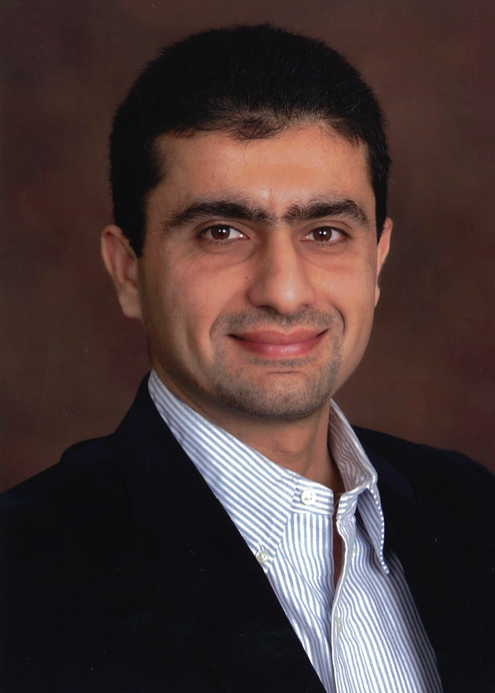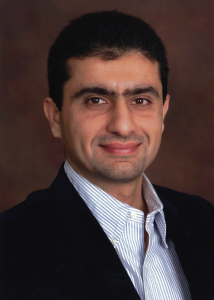“Rapid Label-Free Tools for Health and Environmental Monitoring”
Thursday, March 11 at 1:00pm
Via Zoom
Email communications@ece.ufl.edu for Zoom info
Abstract
In this talk, Dr. Javanmard will discuss his group’s work on fabricating micro- and nanosensing platforms for biomolecular and biochemical detection. In the first part of the talk, he will discuss a digital microfluidic platform for detection of inflammatory proteins in blood and saliva. He will then discuss a novel scheme for barcoding microparticles nanoelectronically, for multiplexed detection of analytes. His group has also developed a novel electrochemical sensor using reduced graphene oxide for detection of inflammatory markers in exhaled breath condensate for management of chronic respiratory diseases. Finally, he will talk about his group’s efforts in developing novel probes for characterization of biological organisms on-the-field in environmental samples.
Biography
Dr. Mehdi Javanmard is an Associate Professor in the Electrical and Computer Engineering Department at Rutgers University. He received the BS (2002) from Georgia Institute of Technology and the MS (2004) and PhD (2008) all in electrical engineering from Stanford University. During his time at Stanford, he worked on the development of electronic microfluidic platforms for low-cost genomic and proteomic biomarker detection, and later worked as a Senior Research Engineer at the Stanford Genome Technology Center. In Fall 2014, he joined the Electrical and Computer Engineering Department, Rutgers University as an Assistant Professor.
His research interests include developing portable and wearable technologies for continuous health monitoring and understanding the effects of the environment on health. In 2017, he was recipient of the Translational Medicine and Therapeutics Award by the American Society for Clinical Pharmacology and Therapeutics for his group’s work in point of care diagnostic tools for assessing patient response to cancer therapies. He has received various awards as a Principal Investigator from the National Science Foundation, DARPA, and the PhRMA foundation to support his research. He was awarded the National Science Foundation CAREER Award for young faculty in 2019 and the DARPA Young Faculty Award in 2020.


